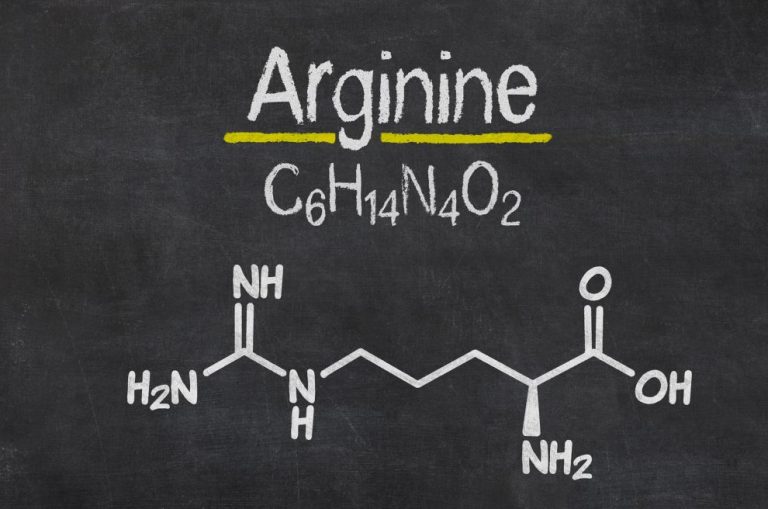Arginine is a basic amino acid, also known as l-arginine, which the body produces alone from other compounds found in the body. Arginine is converted into nitric oxide, agmatine and glutamic acid. Its main task is to transport oxygen to the cells and better blood flow through the blood vessels as well as the muscles. It is part of the sperm protein, is involved in the synthesis of growth hormone.
How does arginine work?
The action of arginine on the human body, and in a special way on the training people is very large. It is not without reason that taking it is so popular. So what does it affect?
- is a substrate in the synthesis of nitric oxide causing relaxation of smooth muscle in the blood vessels leading to better blood flow,
- supports prophylaxis and therapy of atherosclerosis, coronary heart disease, hypertension and cardiac arrhythmia,
- supports regeneration after training,
- affects the condition of the intestinal microflora,
- is important in supporting the immune system,
- regulates metabolism,
- affects the behavior of a slim figure,
- reduces the blood viscosity,
- lowers systolic and diastolic pressure,
- improves insulin sensitivity in patients with type II diabetes.
The dosage of arginine
The recommended dose of arginine is 5 grams a day and it is recommended to take it after training. We should not increase the dose, because the excess can lead to side effects, including the reduction of immunity, the severity of gastric problems, as well as dry skin and kidney fibrosis.
Types of arginine
There are several varieties of arginine, which can be chosen depending on our preferences, on the price, as well as on the way of taking this supplement. And so we can distinguish, among other things.
- L-arginine - this is an amino acid found in free form, very popular, but shows a low tolerance, which should be used more.
- AAKG - it is L-arginine alpha-ketoglutarate, which has greater absorbency than l-arginine alone. Supports protein synthesis, dilates blood vessels, improves the transport of active ingredients into cells.
- L-arginine hydrochloride is arginine which is well soluble in water but is relatively slowly digestible.
- L-arginine malate - this is a salt formed from the combination of l-arginine and malate. Well absorbed, fast acting, but showing short-term effects.
- L-arginine pyroglutamate - it is a compound formed from the combination of arginine and pyroglutamic acid. This supplement strengthens endogenous production of growth hormone.
- L-arginine ethyl ester - this is arginine formed as a result of esterification. Arginine is very stable and bioavailable. Although it is a relatively expensive supplement, it exhibits some of the best properties.






